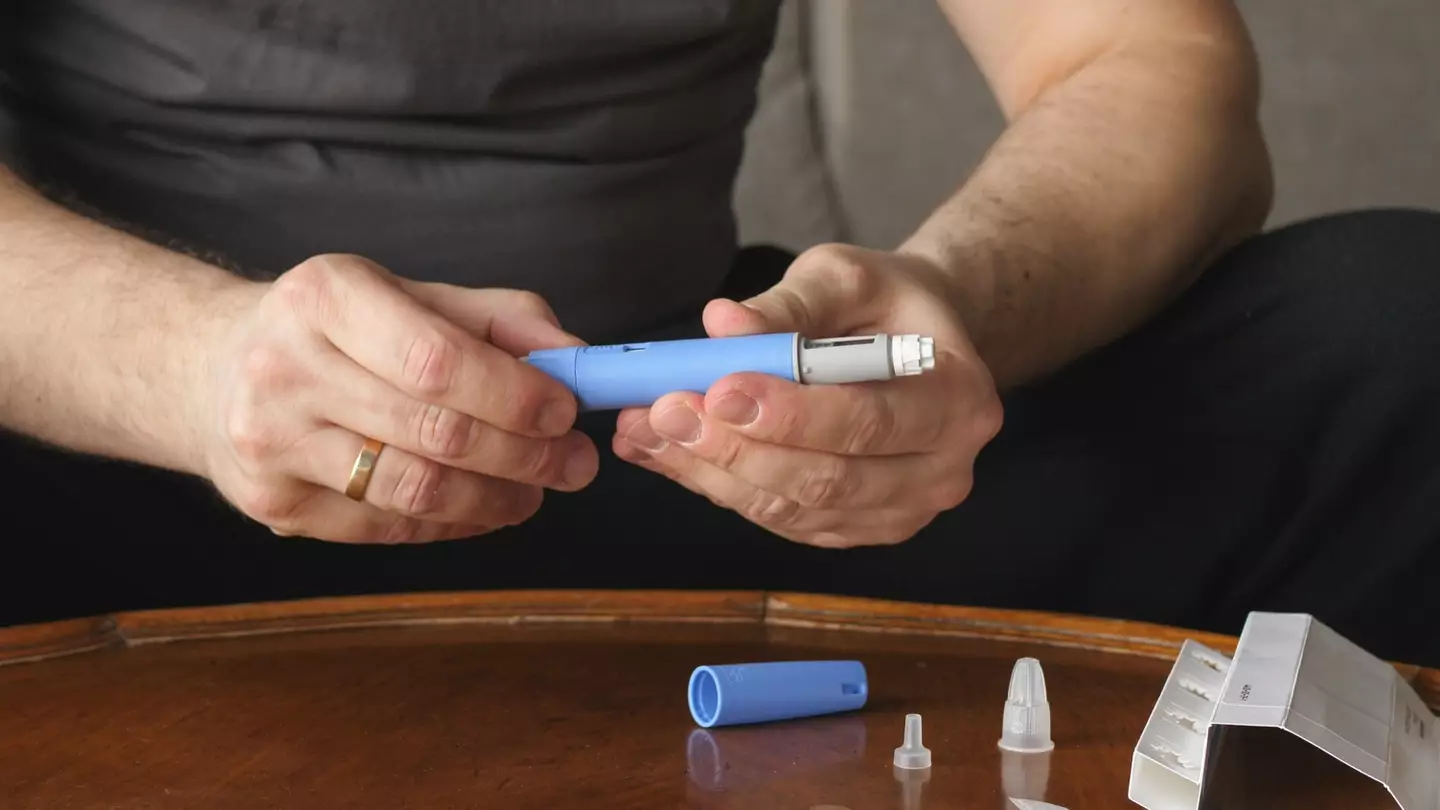Ozempic might have the potential to aid in treating addiction due to an unexpected side effect, according to new findings.
In recent years, Ozempic and other GLP-1 medications have surged in popularity. Approximately 15.5 million adults in the United States, accounting for about six percent of the population, have turned to these drugs.
Though Ozempic is not specifically marketed or approved as a weight loss solution, it is primarily used to manage Type 2 diabetes. However, users have reported experiencing weight loss benefits.
The reason behind this is that GLP-1 medications help regulate blood sugar and can create a feeling of fullness after meals. As with any medication, some users have reported certain side effects.
Interestingly, emerging research indicates that the drug may have additional unexpected benefits.
According to NPR, both doctors and patients have observed that the medication seems to diminish cravings for alcohol, nicotine, and opioids in some individuals. It may also help curb certain compulsive behaviors, such as gambling and online shopping.
A notable case is that of J. Paul Grayson, a 73-year-old retiree from Oklahoma. He began taking Ozempic to manage his weight, pre-diabetes, and high blood pressure, and soon noticed a change in his alcohol consumption habits.
“I remember going to dinner for the first time [while taking Ozempic],” he told NPR. “I ordered a beer, took a sip, and I couldn’t finish it. You know how sometimes you taste a beer, and it’s like, ‘Oh my God, this tastes so good that I want to guzzle it.’ Well, I didn’t feel like guzzling. I just really felt like sipping it.”
“Before Ozempic, I could consume a whole bottle of wine in an evening without trying real hard, along with a bag of chocolates,” Grayson continued. “But with Ozempic, even one beer didn’t feel good to me somehow.”
For scientists, this observation is not entirely unexpected.
Pharmacologist Elisabet Jerlhag and her team at the University of Gothenburg in Sweden have found that GLP-1 drugs can prevent alcohol relapses in rats and mice that are considered ‘addicted.’
“So we see a reduction by over 50%, which is quite dramatic,” Jerlhag stated.
Doctor Lorenzo Leggio, clinical director at the National Institute of Drug Abuse, further explained that this occurs because the drugs ‘also work in your brain.’
“The mechanism in the brain that regulates overeating overlaps with those responsible for the development and maintenance of addiction, including alcohol disorder,” he added.
While much of the evidence remains largely anecdotal, Christian Hendershot, a psychologist and addiction researcher at the University of North Carolina, is conducting a new clinical trial to explore these effects.
He noted: “There’s really been a large number of clinical and anecdotal reports coming in suggesting that people’s drinking behaviors are changing and in some instances pretty substantially while taking [Ozempic or Wegovy.]”
“All these reports, for the most part, are anecdotal. At the same time, it does seem like there’s a pretty strong signal here.”
Researchers are hopeful that the study may open new avenues for addiction treatment, particularly for individuals struggling with substance abuse, alcohol, and smoking.
According to NPR, some physicians are beginning to recommend these drugs for such purposes.
A spokesperson for Novo Nordisk, the company behind Wegovy and Ozempic, commented: “Clinical trials for Wegovy® (semaglutide injection) did not specifically study the medicine’s impact on addictive disorders.”
“Whilst there have been some studies carried out to look at the role of glucagonlike peptide-1 (GLP-1) in addictive disorders, Novo Nordisk is not currently conducting any dedicated clinical studies to evaluate marketed semaglutide products (Ozempic®, Rybelsus® and Wegovy®) in patients with substance use disorders or addiction-related illnesses.”
“Clinical trials for Wegovy® (semaglutide injection) did not specifically study the medicine’s impact on addictive disorders.”

